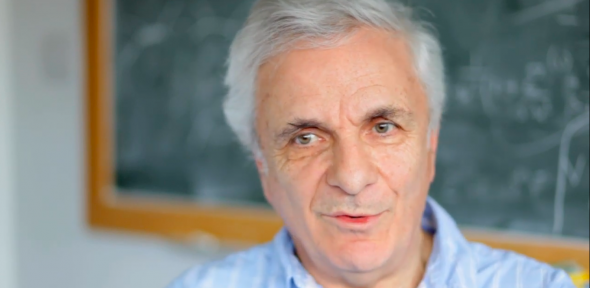
Michael Green, former Lucasian Professor of Mathematics in the Department of Applied Mathematics and Theoretical Physics, has been awarded the Royal Society's 2021 Royal Medal.
The award honours his 'crucial and influential contributions to the development of string theory over a long period, including the discovery of anomaly cancellation'. The Royal Medals, also known as the Queen’s Medals, are awarded annually by HM the Queen on the recommendation of the Council of the Royal Society, in recognition of important and distinguished contributions in the physical, biological and applied sciences.
Green's pioneering work in string theory has had an enormous impact on the field, and has been recognised with multiple awards and honours. When he was elected as a Fellow of the Royal Society in 1989, the citation described how his 'definitive papers [on anomaly cancellation] initiated the explosive growth of superstring theory, now one of the most active and exciting areas of fundamental theoretical physics'. Green succeeded Stephen Hawking as Lucasian Professor of Mathematics - the chair previously held by Isaac Newton - in 2009, a position he held until 2015. In 2014 he shared the US $3 million Breakthrough Prize in Fundamental Physics with his long-term collaborator John Henry Schwarz 'for opening new perspectives on quantum gravity and the unification of forces'.
In the video interview below (originally filmed by the University of Cambridge at the time of the 2014 Breakthrough Prize), Michael Green talked about the history and major developments of string theory, the exchange of ideas between mathematics and physics, and the value of fundamental research, as well as reflecting on his own continuing fascination with the field.
You can read more about Green's work in this article from the University of Cambridge website, originally published to mark the award of the Breakthrough Prize.

